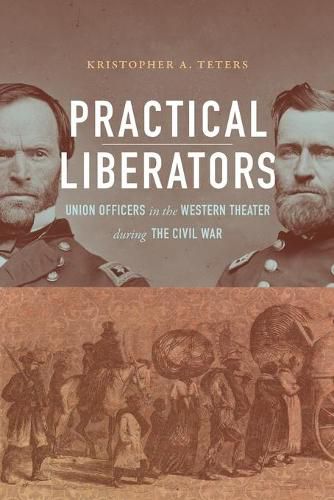Readings Newsletter
Become a Readings Member to make your shopping experience even easier.
Sign in or sign up for free!
You’re not far away from qualifying for FREE standard shipping within Australia
You’ve qualified for FREE standard shipping within Australia
The cart is loading…






During the first fifteen months of the Civil War, the policies and attitudes of Union officers toward emancipation in the western theater were, at best, inconsistent and fraught with internal strains. But after Congress passed the Second Confiscation Act in 1862, army policy became mostly consistent in its support of liberating the slaves in general, in spite of Union army officers’ differences of opinion. By 1863 and the final Emancipation Proclamation, the army had transformed into the key force for instituting emancipation in the West. However, Kristopher Teters argues that the guiding principles behind this development in attitudes and policy were a result of military necessity and pragmatic strategies, rather than an effort to enact racial equality.
Through extensive research in the letters and diaries of western Union officers, Teters demonstrates how practical considerations drove both the attitudes and policies of Union officers regarding emancipation. Officers primarily embraced emancipation and the use of black soldiers because they believed both policies would help them win the war and save the Union, but their views on race actually changed very little. In the end, however, despite its practical bent, Teters argues, the Union army was instrumental in bringing freedom to the slaves.
$9.00 standard shipping within Australia
FREE standard shipping within Australia for orders over $100.00
Express & International shipping calculated at checkout
During the first fifteen months of the Civil War, the policies and attitudes of Union officers toward emancipation in the western theater were, at best, inconsistent and fraught with internal strains. But after Congress passed the Second Confiscation Act in 1862, army policy became mostly consistent in its support of liberating the slaves in general, in spite of Union army officers’ differences of opinion. By 1863 and the final Emancipation Proclamation, the army had transformed into the key force for instituting emancipation in the West. However, Kristopher Teters argues that the guiding principles behind this development in attitudes and policy were a result of military necessity and pragmatic strategies, rather than an effort to enact racial equality.
Through extensive research in the letters and diaries of western Union officers, Teters demonstrates how practical considerations drove both the attitudes and policies of Union officers regarding emancipation. Officers primarily embraced emancipation and the use of black soldiers because they believed both policies would help them win the war and save the Union, but their views on race actually changed very little. In the end, however, despite its practical bent, Teters argues, the Union army was instrumental in bringing freedom to the slaves.